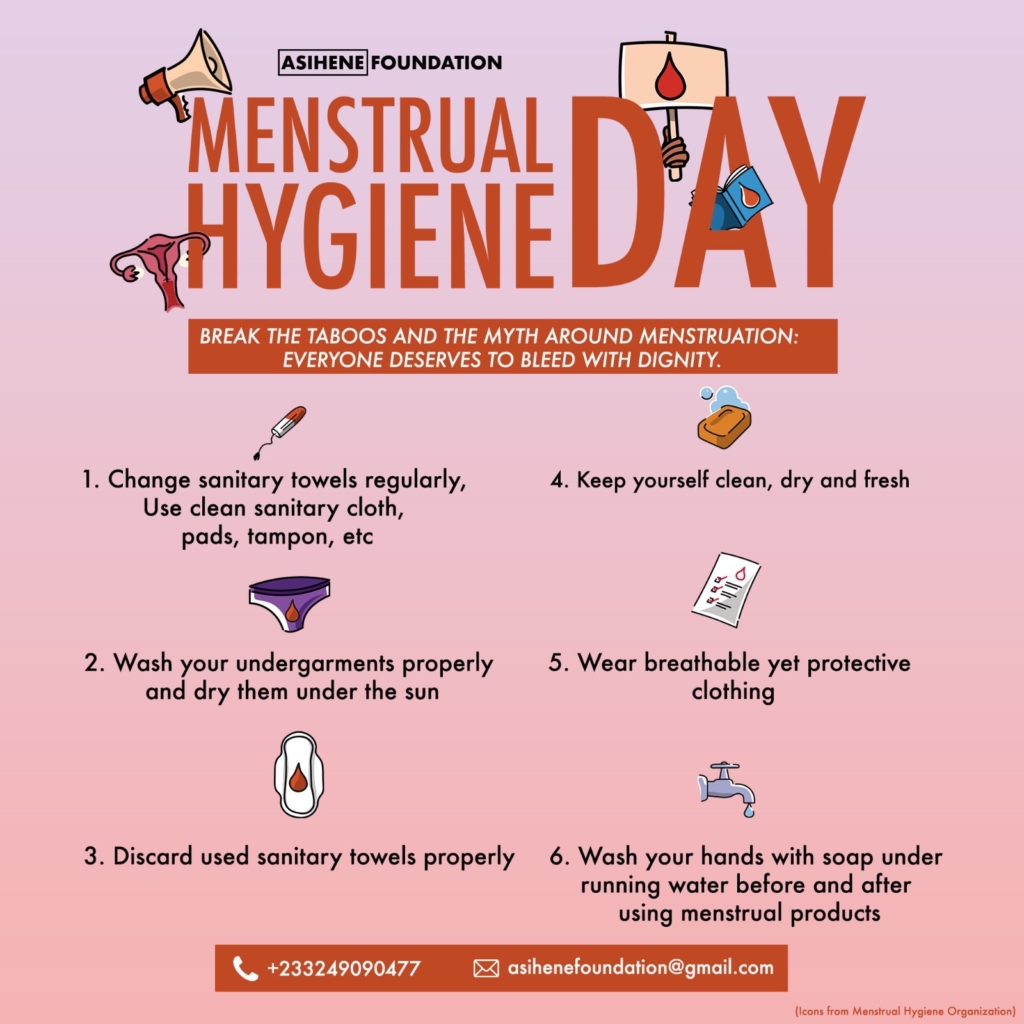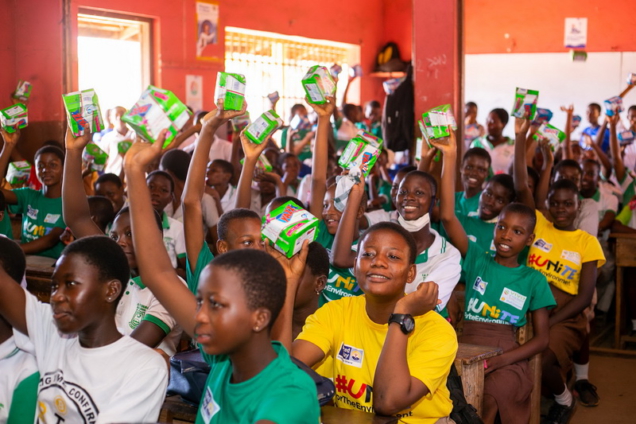The Ghana Education Service is being encouraged to amplify menstrual health education and hygiene awareness as an integral part of the basic-level curriculum.
There is seemingly a worrying trend of stigma attached to menstruation, especially in rural Ghana.
There have been several reports of some communities in Ghana where young school-going girls are barred from going to school during menstruation. Some have even lost opportunities to write exams as a result.
Advocacy by many Not-for-profit Organizations has become critical to not only educating but also supporting young girls in rural Ghana about the phenomenon.
As the world marks Menstrual Hygiene Day, Founder of Asihene Foundation, Edith Asihene advised that menstrual hygiene education must become an important part of Ghana’s education.
“…by inculcating this, boys will also benefit from this education and assist their sisters and or friends when the need be.”
This according to NGO, Asihene Foundation, is imperative to create a support system for teenage girls, especially in rural Ghana.
Ms Edith Asihene says this will offer opportunities for boys to support their female siblings and friends rightfully.
“Menstrual hygiene seems to have been left for only women to champion when it is integrated into the school curriculum that will be a great step to alleviating the problem”.
She is also calling on corporate bodies and businesses to consider adding menstrual health education as part of their corporate social responsibility campaigns.
“ I want to stress that businesses and companies in Ghana should consider adding menstrual education and support systems as part of their corporate social responsibility.
This will go a long way to make life easier for young girls to live a healthy life and be as confident as they must be among their peers.”

In addition, Ms Asihene is also encouraging teenagers to regularly wash their undergarments properly and dry them in the sun.
The Asihene Foundation empowers women especially teenagers in communities in rural Ghana on menstrual hygiene awareness.
“Together, we can ensure that no one is left behind because of their period. No one should have to choose between their education and their period. Let's make sure everyone has access to safe and affordable menstrual products and can manage their periods with dignity and confidence.”
It often mobilised sanitary pads and towels in addition to providing education and mentorship in these rural communities.
Latest Stories
-
Photos from DW-JoyNews street debate on ‘galamsey’
25 mins -
Mimmy Yeboah: Blending heritage with global sophistication, confidence redefined through couture
40 mins -
Akufo-Addo commissions 97-km Tema-Mpakadan railway line
1 hour -
Majority requests recall of Parliament
1 hour -
Kanzlsperger and Professor Quartey support WAFA with medical Donation
1 hour -
Gideon Boako donates 10 industrial sewing machines to Yamfo Technical Institute
2 hours -
‘Golden Boy’ Abdul Karim Razak honored at WAFU-B general assembly
2 hours -
Buipewura Jinapor secures Vice Presidential position in National House of Chiefs with record votes
2 hours -
2024 election: I want results to come out like ‘milk and honey’ – Toobu
2 hours -
Ghana’s Henry Bukari hands over chairmanship of ECOWAS Brown Card Council of Bureaux
2 hours -
Residents of Dome-Kwabenya on edge ahead of December elections
3 hours -
Moffy drops new single ‘Wo’, blending culture and modernity
3 hours -
Don’t bring soldiers to polling stations – Martin Kpebu
3 hours -
Ogyeahohuo Yaw Gyebi II retained as President of National House of Chiefs
3 hours -
Embrace ICT to fit in digital world – Ho NYA boss to youth
4 hours

